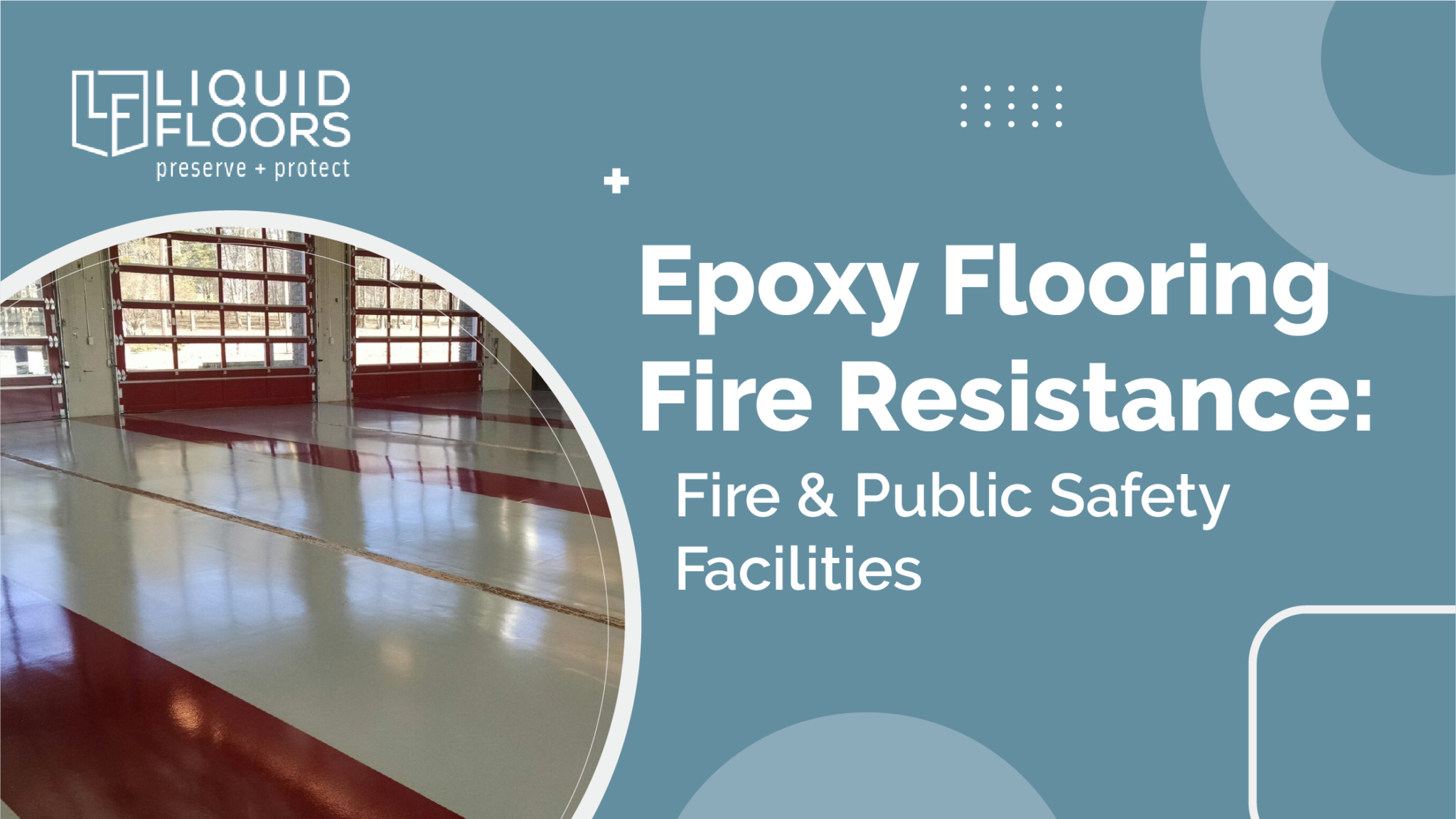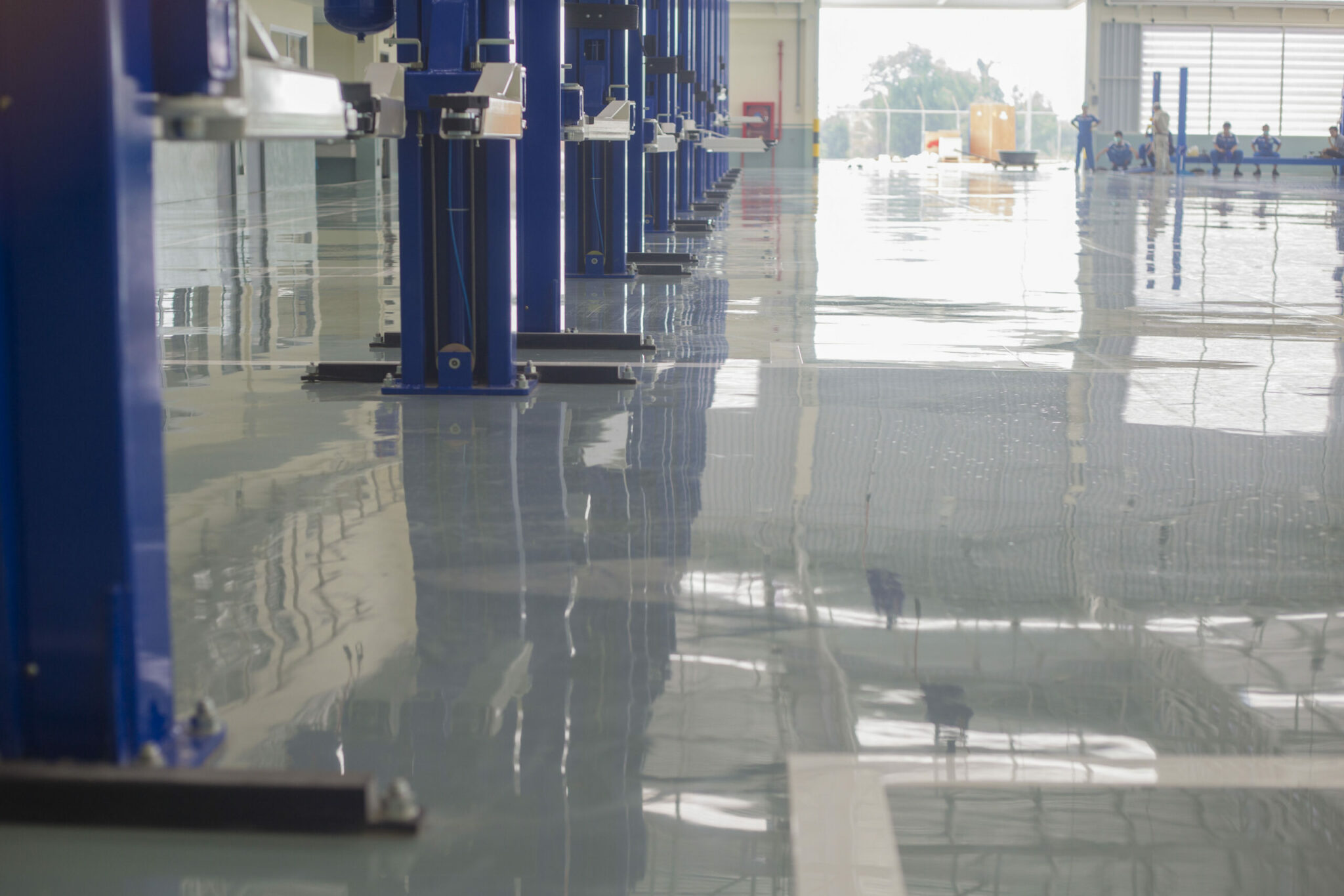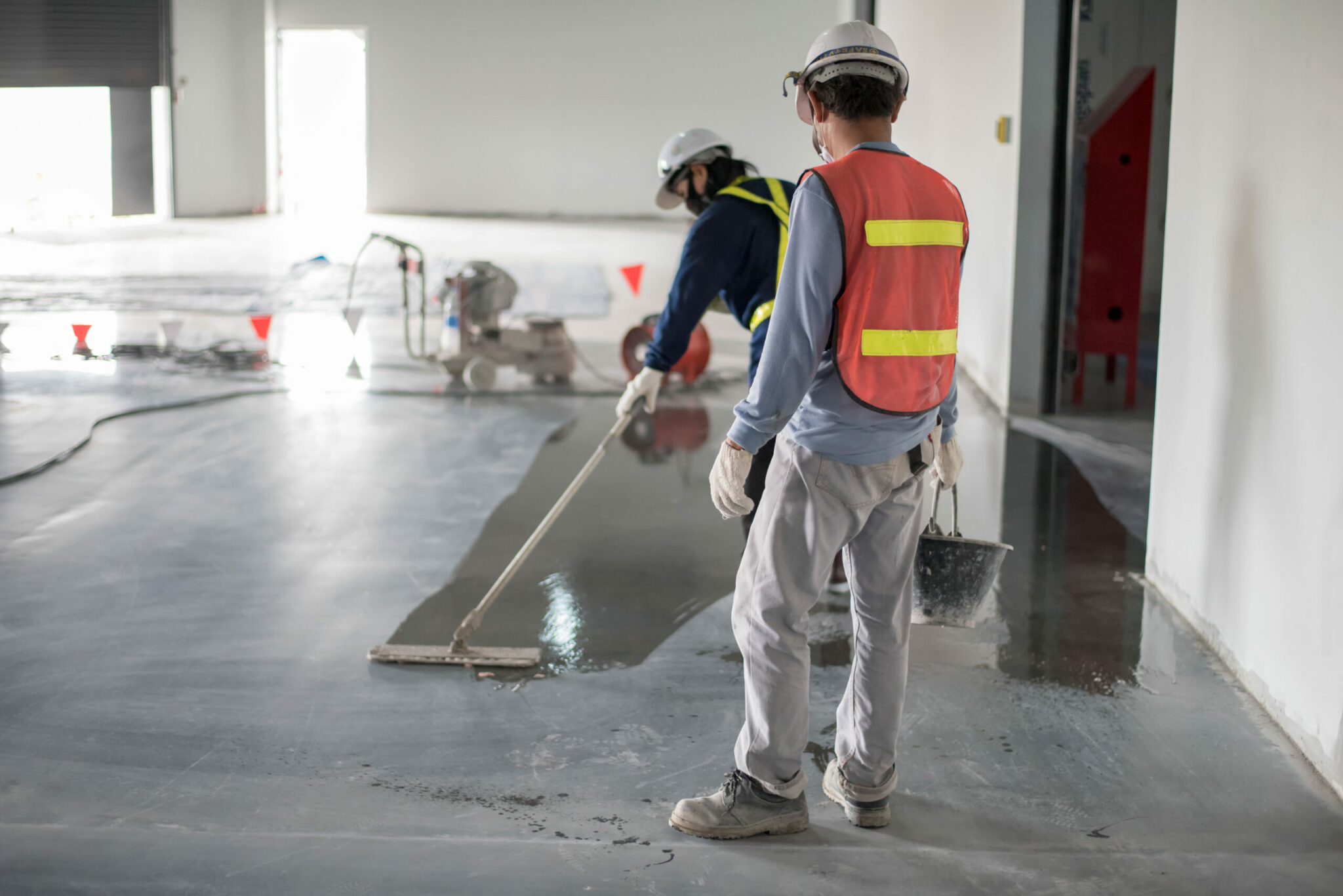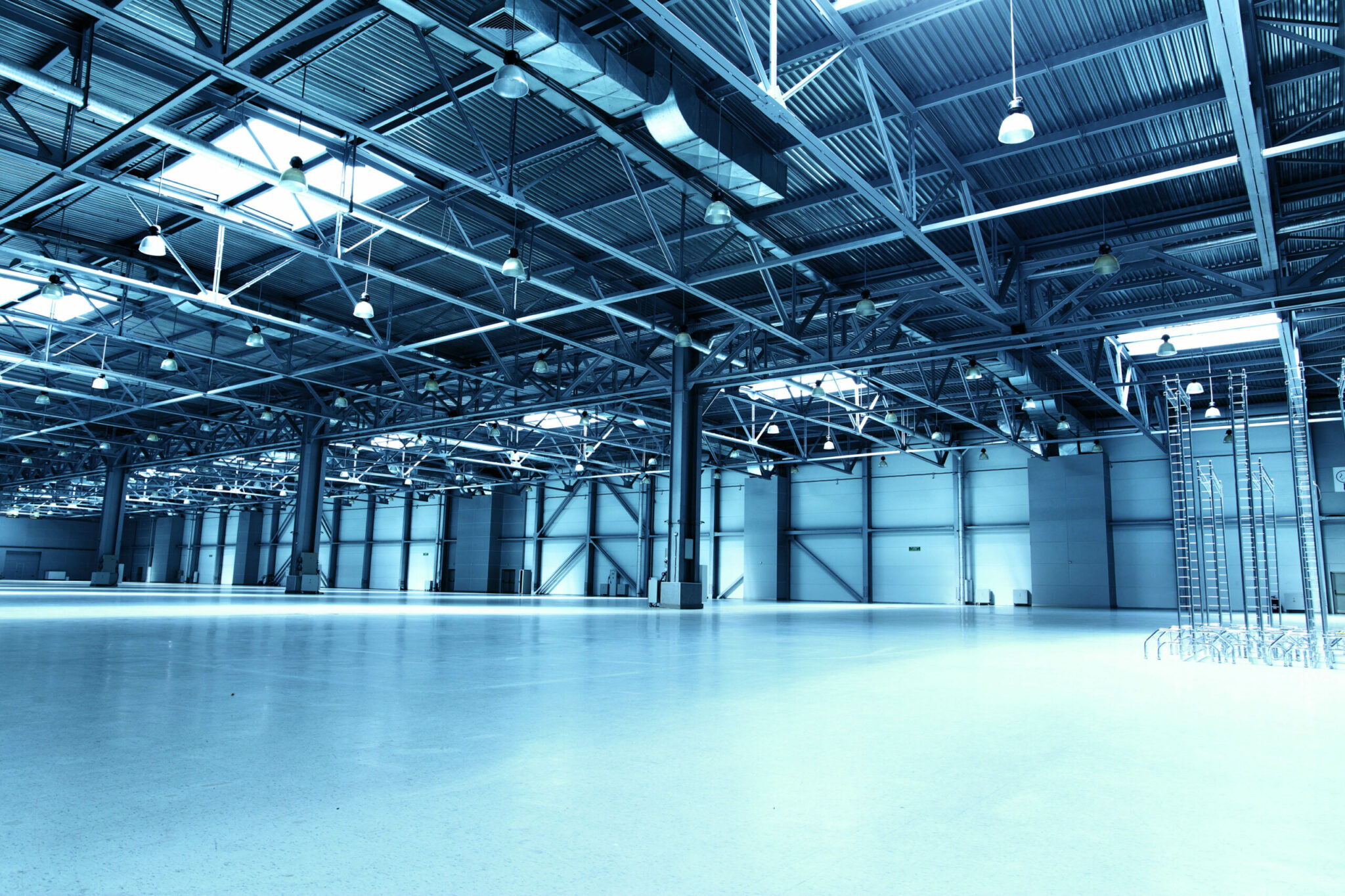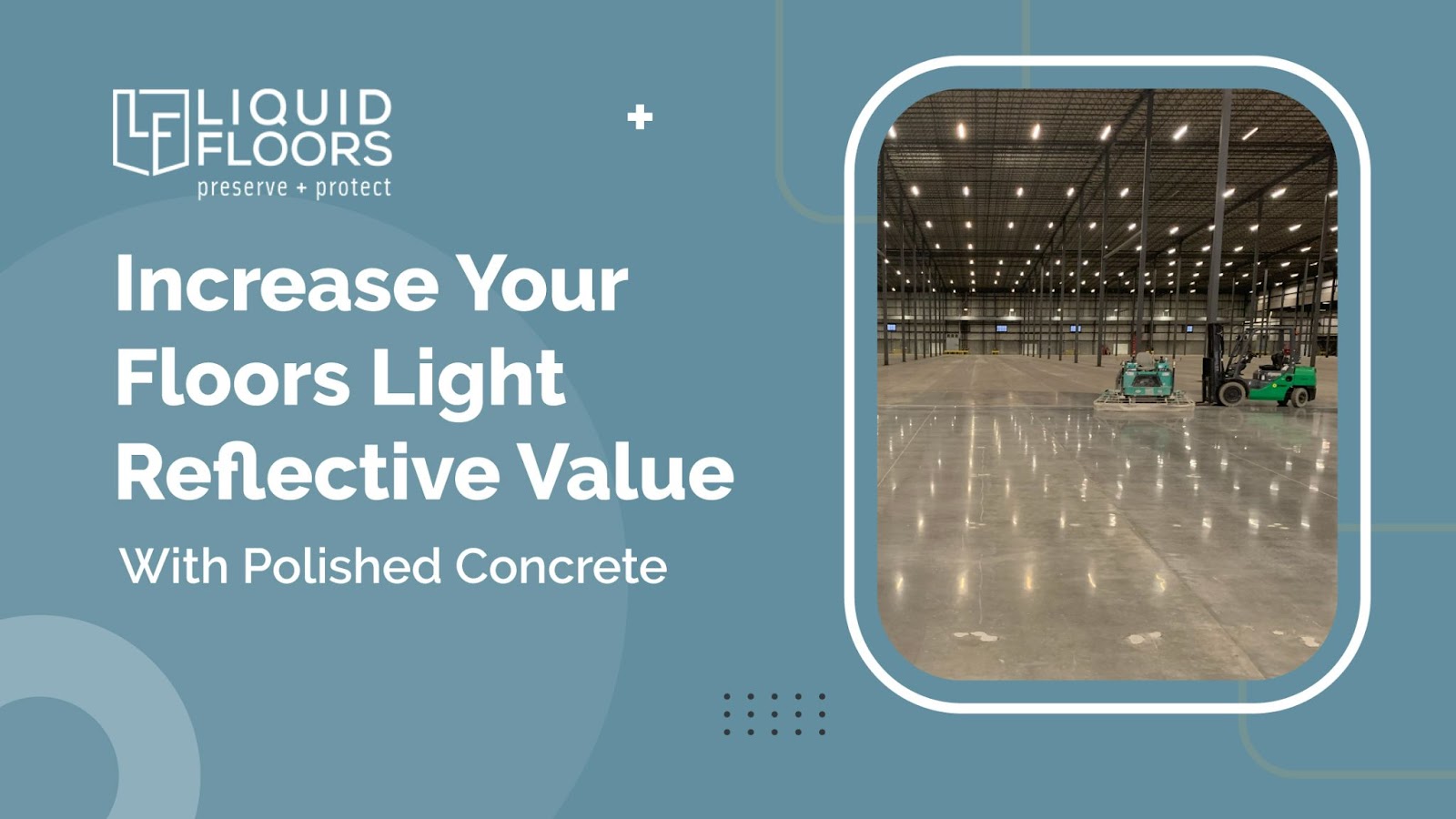Epoxy flooring has been gaining popularity in recent years, and it’s more than just a style decision! Epoxy makes a long-lasting, low-cost, low-maintenance flooring choice that is also aesthetically pleasing. This flooring system’s functionality also includes impact sound reduction, fire resistance, and slip resistance.
There are many benefits to having flooring installed by epoxy experts. Learn more about the safety features epoxy flooring offers your public facility in this blog post.
Is Epoxy Flooring Fire Resistant?
Epoxy has a relatively low fire resistance of 275 degrees Fahrenheit. Epoxy flooring can melt in the case of a fire that reaches 275 degrees Fahrenheit or higher. Unlike other materials, epoxy flooring doesn’t contribute to fires or make them worse by spreading the flames or releasing poisonous smoke.
While epoxy flooring may not have the highest flame retardant quality, you can still use it in flooring for public safety buildings and facilities such as hospitals and schools requiring a high fire safety level. Epoxy flooring can also be used with other materials, such as vinyl tile overlay, to create a more fire-resistant flooring option.
Are There Fire-Rated Epoxy Flooring Options?
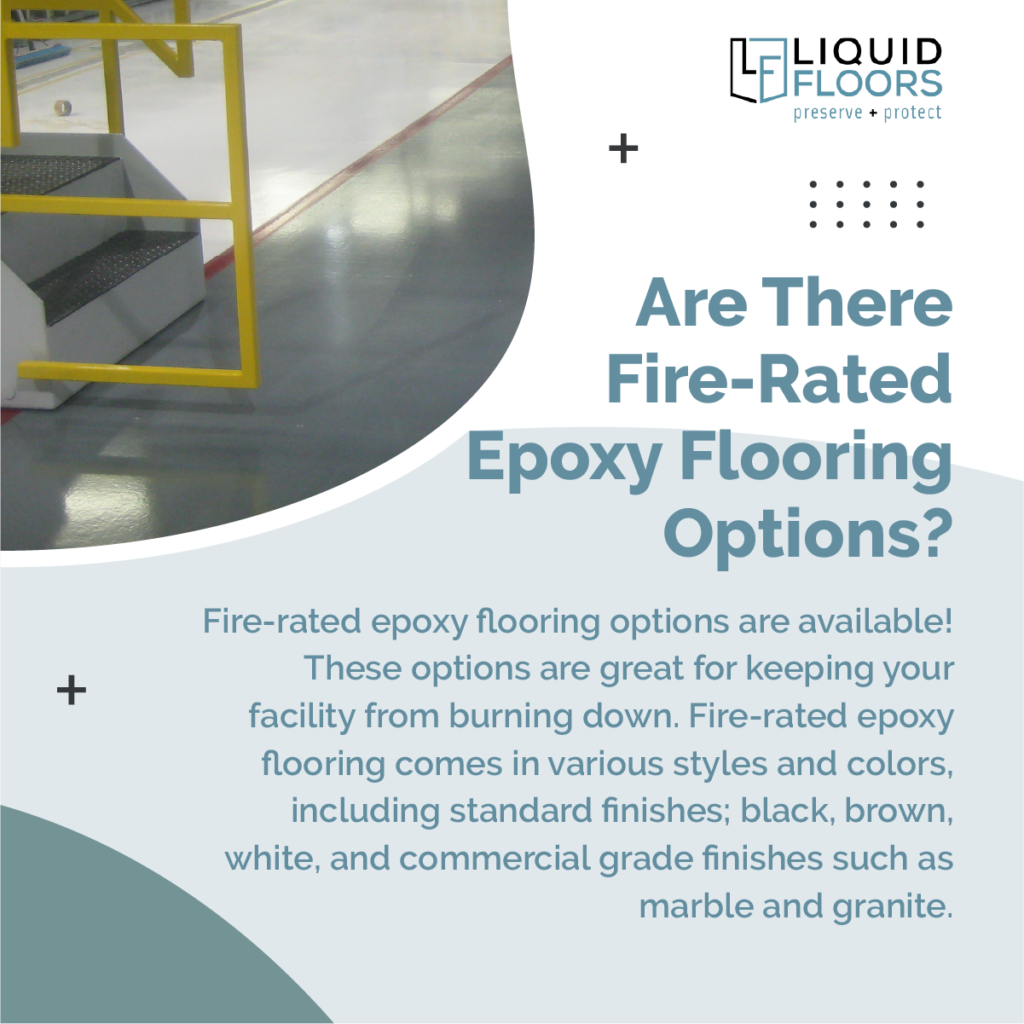
Fire-rated epoxy flooring options are available! These options are great for keeping your facility from burning down. Fire-rated epoxy flooring comes in various styles and colors, including standard finishes; black, brown, white, and commercial grade finishes such as marble and granite.
Fire-rated epoxy flooring is an excellent choice for public safety facilities. It can provide superior resistance to fire without the heavy smell of smoke and residue at the end of a fire. It’s also a good choice for public facilities because it can meet EPA and OSHA fire codes or other code requirements.
What Is the Risk of Fire in A Facility?
The probability of fire occurrence is not the only factor determining a facility’s overall risk. The condition and age of the building are also important considerations. There will always be some fire risk somewhere in any building, even when there is no report.
Fire occurs, whether by natural causes or by human intervention. The probability and risk of fire occurring in a facility have to be assessed case-by-case. This is due to the complex location of fire hazards in many buildings and the possibility of multiple causes.
Fire is a natural hazard to a business, facility, or home. Epoxy flooring can help protect against fire by keeping smoke and hot gasses away from building elements and systems. It can also help contain the spread of fire damage to preserve the structure before it catches fire.
Flooring for Public Safety Buildings
The flooring needs of fire and public safety facilities are unique. Surfaces need to provide non-slip properties to keep personnel safe, while being durable enough to house heavy loads such as ambulances, fire engines, and police transportation. Here are four reasons why epoxy floor coatings are up to the challenge:
- Slip Resistance
Slip resistance is key to preventing accidents and keeping personnel safe. When the alarm sounds, there is no time for slip-and-fall accidents. Epoxy coatings can be formulated to include silica sand and then grout coated to provide a non-slip surface, even in a wet environment.
- Durability
There are few flooring options as durable as epoxy. Epoxy is tough enough to hold up under the daily abuse of ambulances, fire engines, and police transportation. Of course, if it can withstand these loads, handling heavy foot traffic is a breeze.
- Impact Resistance
The proper epoxy floor coating does more than simply hold its own under heavy loads; it also offers excellent impact resistance. Epoxy floor coatings offer protection from the impact of dropped tools, which can permanently damage a floor’s surface.
- Easy Clean-Up
Clean-up is a concern in public and safety facilities. Repair bays can easily become soiled with oil, resulting in a hazardous work environment. By installing a slope to drain feature, wash-downs require hardly any time at all, which means your public safety officials can get back to what they do best – protecting civilians.
These are just four of the many reasons epoxy floor coatings are the right choice for public and safety facilities. But how does this flooring system hold up in a fire?
What Else Can a Facility Owner Do to Improve Epoxy Flooring’s Impact on Fire Safety?
There are a few other things that facility owners can do to increase the fire resistance of their epoxy flooring. First, facilitate the proper installation of your epoxy flooring. Proper installation will ensure that it meets all public safety facility design requirements.
How Long Does an Epoxy Floor Last?
There is no set timeline for how long epoxy flooring will last. How long your epoxy flooring system lasts depends on the quality of material, maintenance routine, and proper installation. It is essential to monitor any signs of discoloration, peeling, or cracking.
Causes of Epoxy Floor Cracking
The rigid characteristics of an epoxy floor can cause cracks when the foundation shifts. Foundational shift cracks are unpreventable and will just have to be repaired. However, there are some causes of cracking that can be prevented:
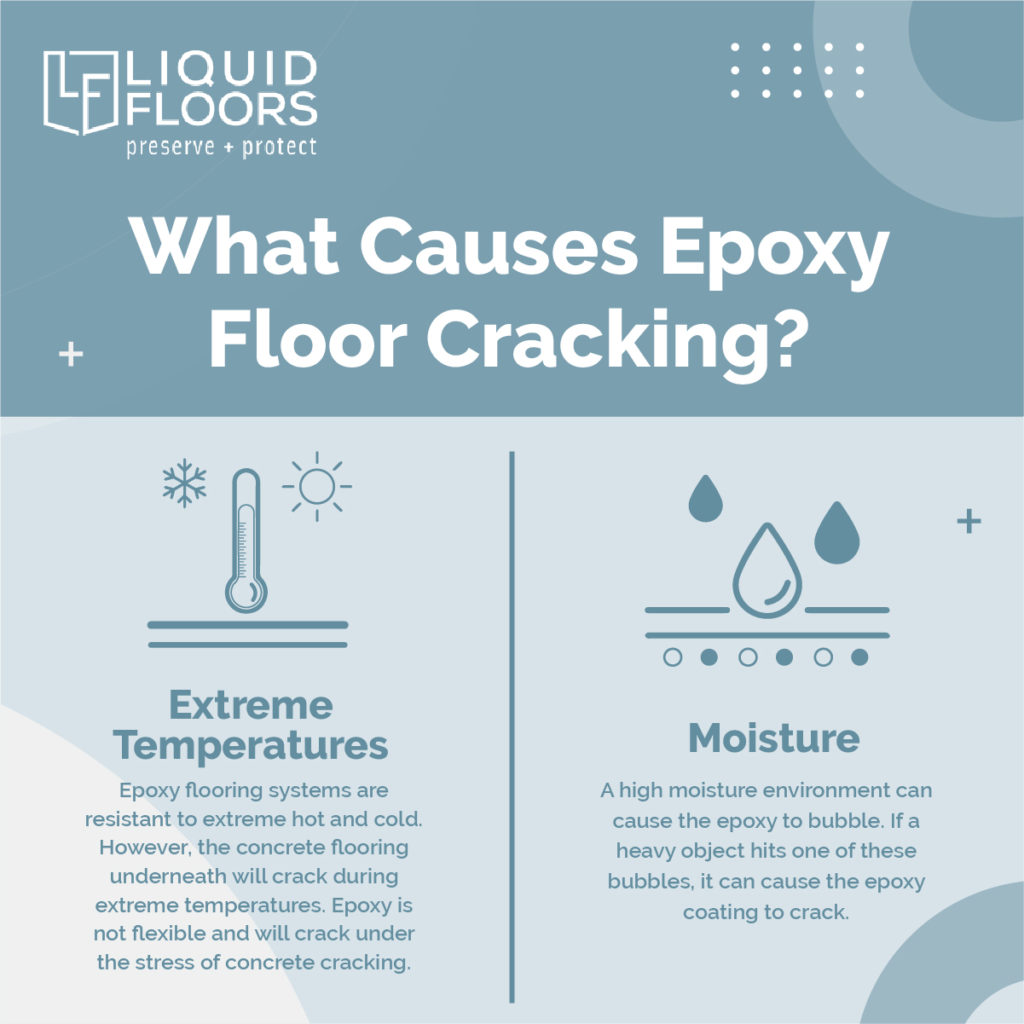
Extreme Temperatures: Epoxy flooring systems are resistant to extreme hot and cold. However, the concrete flooring underneath will crack during extreme temperatures. Epoxy is not flexible and will crack under the stress of concrete cracking.
Moisture: A high moisture environment can cause the epoxy to bubble. If a heavy object hits one of these bubbles, it can cause the epoxy coating to crack.
It is essential to select an experienced contractor to prevent future cracking. The right contractor will be able to assess your concrete subfloor and find ways to prevent future cracking.
Why Is Epoxy Flooring Popular?
A non-slip epoxy floor coating is popular in the public safety industry because it is an affordable, easy-to-install material. They typically cost significantly less than other flooring options and are low maintenance, saving facilities money. Contact Liquid Floors team to find the right flooring for your public safety building.

